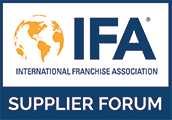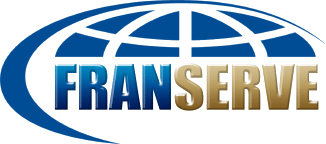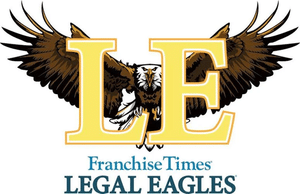How to Launch Your Franchise
You can’t launch a successful franchise system in one night; however, it also shouldn’t take a year. If you plan properly, hire the right professionals, and understand the necessary steps it can be done in 4 to 6 months. Most people either underestimate or overestimate the time and cost of launching a franchise. Each brand and system is unique; however, the process from one launch to another follows similar steps and best practices. Don’t be fooled by those who say it isn’t hard or intimidated by those who say it is impossible. Like goldilocks finding the right porridge, the truth is somewhere in between.

1. Creating a Profitable Business: The process shouldn’t start until the owner feels that he/she has a profitable, well-run business that can be duplicated by others.
2. Trademarks: Franchise agreements are intellectual property licensing agreements that should be primarily based on federally registered trademarks. Securing your trademark can be done prior to the beginning of the project; however, all trademarks should be reviewed by an experienced Intellectual Property/Trademark attorney to ensure their enforceability and national validity. Trademarks are the keystone of your franchise system. Your name and logo should be formally searched nationwide to uncover potential issues upfront. It is much easier to deal with naming issues prior to launch. Close to half of potential franchise launches have issues with their name or logo, most of which can be solved.
3. Refine Entity Structures: Some of this work may already be done. The best practice is, at a minimum, to form a clean new entity to act as the new franchisor. If the franchisor has multiple owners, a strong well-written, operating agreement or corporate shareholder agreement is essential for the long-term health of the system.
4. Strategic Business Plan: This is a crucial and necessary step in the process. The key to a successful franchise launch is to have experienced professionals guide you through the process and help you make the many business decisions necessary to becoming a franchisor. Business owners are moving from running and operating their core business (whether they own a service business, restaurant, pet store, etc.) to a new business segment, franchising. If you have never been a franchisor, you should seek guidance into best practices, structures, budgets and strategies on recruiting new franchisees and supporting those franchisees once they sign up. New franchisees will trust that you will be ready. A good franchise consultant will get you ready.
5. Draft the FDD & Franchise Agreement: The Franchise Disclosure Document (the FDD) & the Franchise Agreement are required by law for all franchisors. These must be prepared by attorneys, or the new franchisor is at risk of having agreements that will compromise their intellectual property and/or will not be enforceable. It is also imperative that the attorney works directly for the franchisor and not through a consultant or third party. Preserving attorney-client privilege and the attorney’s duty to serve the client’s best interest is critical. Legal documents should be prepared by attorneys with a direct relationship and understanding of the client’s business.
6. Draft the Operations Manual: For the franchisee, this is where the rubber meets the road. The operations manual should be drafted by someone with experience in translating your business processes, procedures, and practices into a practical guide on how to run the business. Cutting corners here will undermine the foundation of your system. A strong operations manual will help you to have strong profitable franchisees–which are the bedrock of all successful systems.
7. Financial Statements: You will need separate financial statements for your new franchisor entity. Depending on the state(s) where you want to initially recruit franchisees, the financial statements may need to be formally audited. Eventually, you will need audited financial statements as part of the federal rules. Even though you will only have a handful of transactions initially, a formal audit should be done by a CPA with franchise experience.
8. Branding & Marketing: The new logo, strategic positioning, and value proposition for both the customers of the franchisees and the prospective franchisees you want to recruit are an integral part of any successful franchise launch. A solid message, website, and collateral materials will help you spread the word to the market that you are ready to grow.
Do you think you’re ready to launch a franchise? Call Spadea Lignan Franchise Attorneys at 215-525-1165 for a free initial consultation on the feasibility of franchising your company.







